
Educational and Clinical Counseling, MAEd, and embedded School Counseling Credential
Earn an MAEd in Educational and Clinical Counseling with an Embedded School Counseling PPS Credential at Azusa Pacific
Graduate equipped as a leader in education and mental health to serve wherever God leads. The MAEd in Educational and Clinical Counseling also prepares you for the optional Licensed Professional Clinical Counselor (LPCC) pathway by seamlessly integrating the Pupil Personnel Services (PPS) Credential in School Counseling. You’ll be empowered to confidently pursue an impactful career in counseling, whether you’re passionate about helping in schools or clinical settings.
APU Ranked Among Best Grad Schools by Money
Azusa Pacific University was ranked in Money’s Best Graduate School Programs 2025 for education and nursing, focusing on affordability, value, and return on investment.
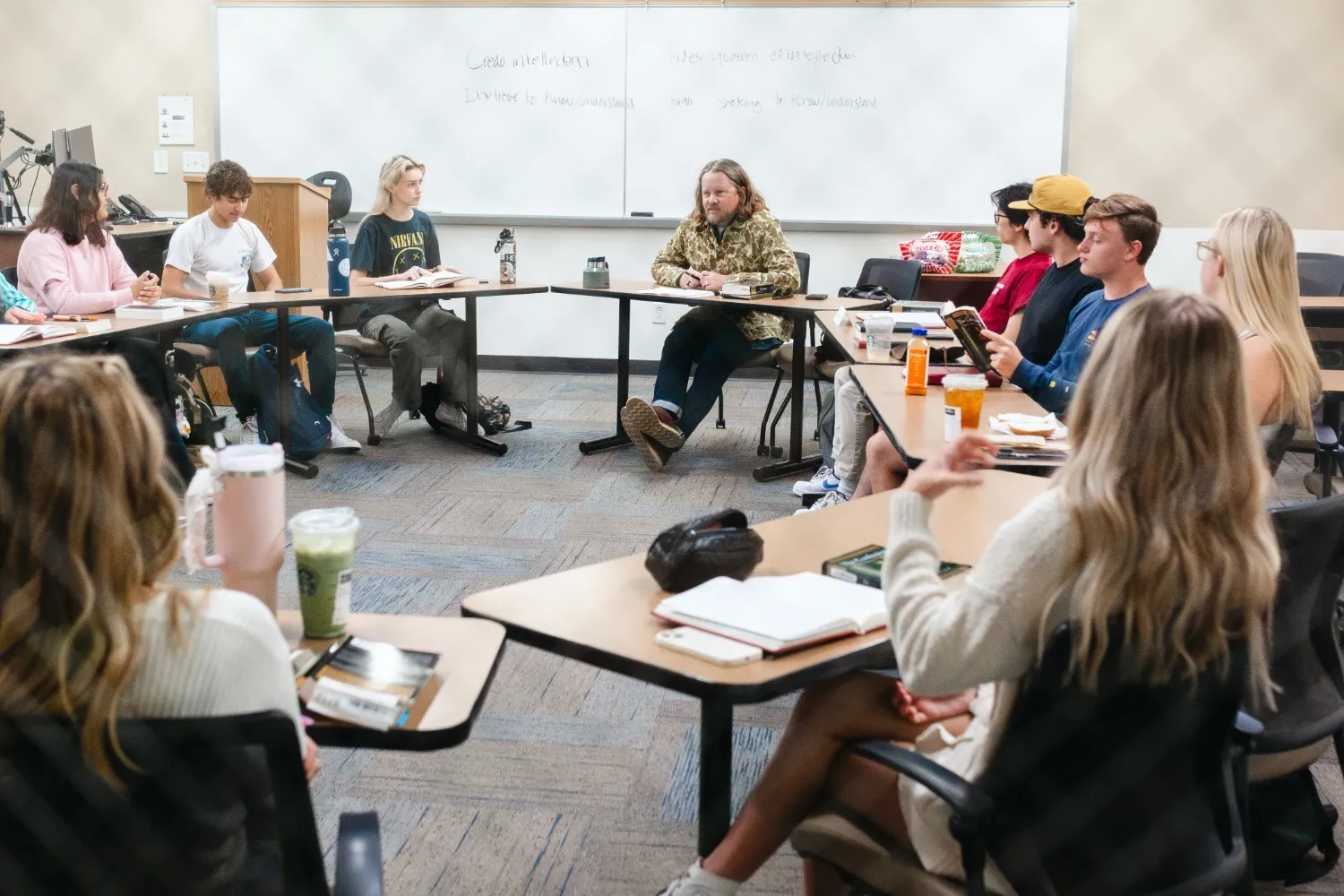
Program at a Glance
Program Information
- Program Units: 62
- Cost per Unit: $815
- Base Cost: $50,530*
Location
- Azusa (Main Campus), Murrieta, Orange County
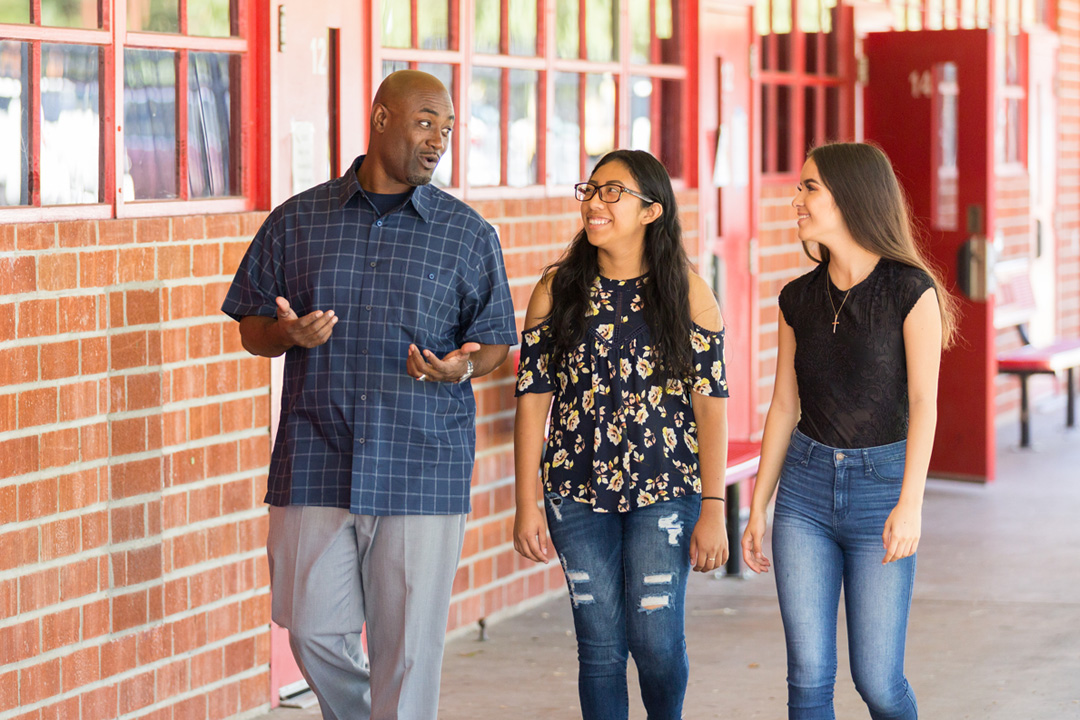
Gain Hands-on Experience
- Practice counseling strategies in the field or internships.
- Understand relevant educational and mental health issues firsthand.
- Learn from professional faculty-mentors.
By the Numbers
Get Started
Program Details
The Master of Arts in Education: Educational and Clinical Counseling degree is a 62-unit program that encompasses the 50-unit MAEd in Educational Counseling degree plus the 12 additional units of coursework required by the California Board of Behavioral Sciences for Licensed Professional Clinical Counselor (LPCC) eligibility. The program prepares candidates to obtain a Pupil Personnel Services Credential necessary to work in K-12 school settings, provides a clinical emphasis, and satisfies the coursework requirements set forth for California licensure as an LPCC.
Browse the tabs below—if you have questions, visit the Student Services Center page, and we’ll make sure you get the info you need.
Informational Meetings
Prospective students may attend an informational meeting prior to submitting an application. Complete details regarding admission and specific program requirements, advising, and general information are discussed at information meetings. For details on upcoming dates, meeting locations, or registration, check the School of Education's information meeting calendar or call (626) 815-5376.
The admission requirements for your educational counseling program will vary depending upon your status as a domestic or international applicant.
Admission Requirements—Domestic Applicants
The university graduate and program admission requirements below must be met before an application is considered complete.
- Graduate application for admission
- $45 nonrefundable application fee
- Official transcripts from all institutions leading to and awarding the applicant’s
bachelor’s degree from a regionally accredited institution and all postbaccalaureate
study
An official transcript is one that Azusa Pacific University receives unopened in an envelope sealed by the former institution and that bears the official seal of the college or university. A cumulative minimum 3.0 (on a 4.0 scale) grade-point average on the posted degree is required for regular admission status. Provisional admittance may be granted to individuals with a lower GPA if competency can be shown through multiple measures. - Two recommendations submitted by employers, supervisors, or professors who have current knowledge of the applicant’s academic ability and potential within the profession
- A five-page essay or autobiography describing personal and professional history
- Résumé (preferred) or statement of experience including the most relevant work and volunteer experience
- Proof of Certificate of Clearance (COC). Applicants for Summer or Fall Terms must have a COC valid through January 31. Applicants for the Spring Term must have a COC valid through June 30. View instructions on Obtaining a Certificate of Clearance (PDF). Applicants are encouraged to begin this step as soon as possible to allow time for the California Commission on Teacher Credentialing to process your information.
- Proof the Basic Skills Requirement has been satisfied
Admission Requirements—International Applicants
Azusa Pacific University is authorized under federal law by the U.S. Citizen and Immigration Services and the U.S. Department of State to enroll nonimmigrant, alien undergraduate and graduate students. APU issues and administers both the I-20 and DS 2019 (F-1 and J-1 status documents respectively).
To apply for a graduate program at APU, the following requirements must be fulfilled in addition to meeting the domestic applicant and program-specific admission requirements specified above.
International applicants must also:
- Demonstrate proficiency in English through a placement test with the Academic Success Center, or through a TOEFL/IELTS score that meets program-specific requirements. Refer to APU’s English proficiency requirements to learn more. Request that official test scores be sent to APU. All other forms of proof indicated in the English proficiency requirements must be submitted directly to International Services.
- Provide a Graduate Affidavit of Financial Support (PDF) and a bank statement from within the last six months proving financial ability to pay for education costs through personal, family, or sponsor resources.
- Submit a copy of a valid passport showing biographical data, including your name, country of citizenship, date of birth, and other legal information.
- Get foreign transcripts evaluated. International credentials (transcripts, certificates, diplomas, and degrees) must be evaluated by a foreign transcript evaluation agency. View our policy and a list of approved Foreign Transcript Evaluation Agencies.
Send official transcripts to:
Office of Graduate and Professional AdmissionsAzusa Pacific University
PO Box 7000
Azusa, CA 91702-7000
[email protected]
What to Expect
After all admission materials have been received by the Student Services Center, the faculty or department chair reviews the applicant’s file. The applicant is notified in writing of the admission decision.
Multiple financial aid options are available to make your educational and clinical counseling degree affordable.
Delivering high-quality graduate programs takes a comprehensive support system. Your investment in an advanced degree or program includes a network of services and personnel who partner with you in pursuit of higher education. Below is a breakdown of some common fees associated with School of Education programs.
School of Education Fees
| Cost | |
|---|---|
| EdD in Educational Leadership (per unit) | $1,200 |
| EdD in Educational Leadership dissertation continuation courses (per unit) | $570 |
| Education master’s degree, credential, authorization, and certificate programs (except School Counseling and School Psychology programs) (per unit) | $675 |
| School Counseling and LPCC programs (per unit) | $815 |
| School Psychology programs and BCBA Certificate (per unit) | $855 |
| Audit (per unit) | half-price tuition |
| School of Education assessment fee (Taskstream/Teacher Performance Assessment; flat fee equal to cost of .25–1 unit, depending on the program and course the fee is attached to) | no longer applicable |
| Intent to Commence and/or Graduate Fee | $100 |
View a complete list of university fees.
All stated financial information is subject to change. Contact the Student Services Center at (626) 815-2020 for more information.
Financial Aid
Several types of financial aid are available to graduate students. The resources range from federal loans and state grants to, for some graduate programs, fellowships and scholarships. For details about financial aid available for your program, please contact the Student Services Center at (626) 815-2020.
Military Benefits
Military members—and in some cases their spouses and dependents—qualify for financial assistance covering tuition, housing, and books. Azusa Pacific is a Yellow Ribbon University and Military Friendly School, so you can be confident that you’ll receive the benefits and flexibility you need to complete your education.
School of Education Scholarships
APU also provides information on numerous financial aid options for prospective School of Education students. Learn more about the aid opportunities available.
School of Education Alumni Tuition Discounts
APU’s School of Education offers an alumni tuition discount for Azusa Pacific alumni starting in a graduate program.
Students must be in good academic standing and maintain satisfactory academic progress with a minimum cumulative grade-point average (GPA) of 3.0. Students must be enrolled at least half-time. If qualifications are met, the discount may be renewed each term. APU will pay $500 per term (up to $2,000 over the course of the program). This discount cannot be combined with other institutional aid. Contact Student Financial Services for complete eligibility details.
Notes on Eligibility: The School of Education’s doctoral program (Ed.D. in Educational Leadership) and the Clear Administrative Services Credential (CASC) program are not eligible for the alumni tuition discount. APU doctoral alumni are also not eligible for the School of Education alumni discount. Additionally, the alumni discount cannot be combined with other institutional aid, such as School of Education scholarships. Students who are eligible for both may choose to receive either the alumni discount or an APU scholarship. Contact Student Financial Services for complete eligibility details.
Note: Award and eligibility are applicable for the 2022-23 academic year and apply to students admitted beginning fall 2020. The discount is subject to change.
To view specific requirements and coursework information, visit the current academic catalog:
How many units do I take each term?
Full-time students take 6 units every eight weeks. However, many candidates are working adults and do not take classes full time. Academic advising is highly recommended to determine the course load required.
How long is a term?
A term is comprised of two eight weeks sessions, including final exams. Most classes are offered in accelerated eight-week sessions.
How many hours does each class session require?
Classes meet for approximately 4 hours and 15 minutes, once a week.
How many evenings per week do I attend classes?
Most students attend classes two evenings per week.
How many students will there be in my classes?
APU is noted for its small classes with personalized attention. Most courses do not exceed 15–20 students.
Does APU require theses, dissertations, or capstone projects?
This program culminates in a comprehensive exam (Praxis II) only.
How soon can I finish this program?
The educational counseling program can be completed in 2½ years.
If you have questions, we’re here to help! Connect with a representative who can walk you through the program details and application process.
Contact Your Admissions Representative
Additional Program Contacts
- Michael Salce, EdD, Department of School Counseling and School Psychology Department Chair, [email protected], (626) 815-6000 Ext. 5130
- Judy Johnson, EdD, Educational and Clinical Counseling Program Coordinator, [email protected], (626) 815-6000 Ext. 5124
- School Counseling email - [email protected]
Department of School Counseling and School Psychology
Phone
(626) 815-5424
Azusa Pacific University
PO Box 7000
Azusa, CA 91702-7000
Student Services Center
Contact (626) 812-3016 or [email protected], and visit apu.edu/ssc for details on the admissions process, financial aid, and class registration.
International Services
International students should contact +1-626-812-3055 or [email protected], and visit apu.edu/international/.
- Azusa Pacific University is accredited by the WASC Senior College and University Commission (WSCUC).
- In addition, the School of Education hold national accreditation from the Council for the Accreditation of Educator Preparation (CAEP), making APU one of only three private schools in California with this distinction.
- Further, our credential programs are accredited by California’s Commission on Teacher Credentialing (CTC).
Career Outlooks and Outcomes
Featured Faculty
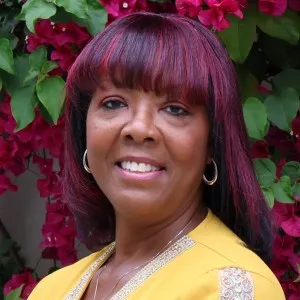
Michelle Cox
Director, School Counseling Program; Professor, Department of School Counseling and School Psychology
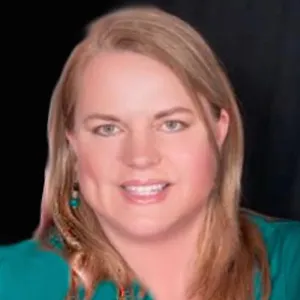
Roberta Alba
Assistant Professor, Department of School Counseling and School Psychology

Julia ‘Judy’ Johnson
Assistant Professor; Program Coordinator, Licensed Professional Clinical Counselor (LPCC) Program, Department of School Counseling and School Psychology
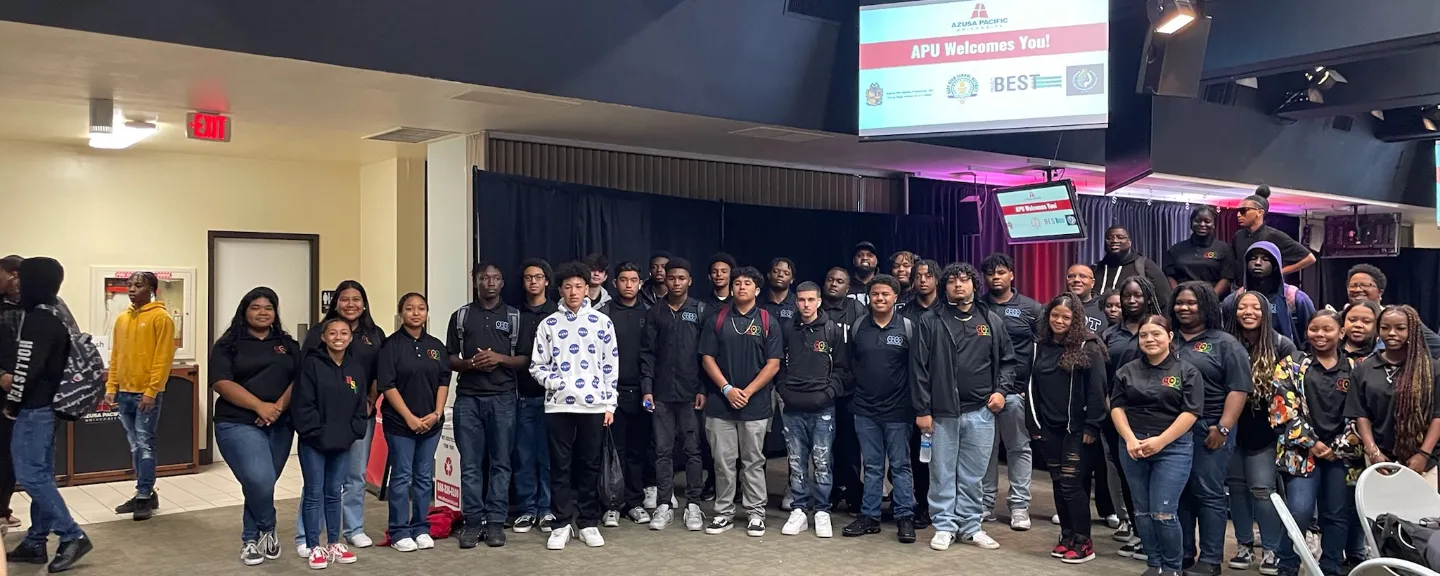
Prospective Students Find Belonging at APU
Alumnus Bryan Bowens, EdD ’14, brought a group of high school students from Kern County’s Project BEST (Black Excellence in Scholarship and Teaching) to APU’s campus to show them that a top college experience is within their reach.